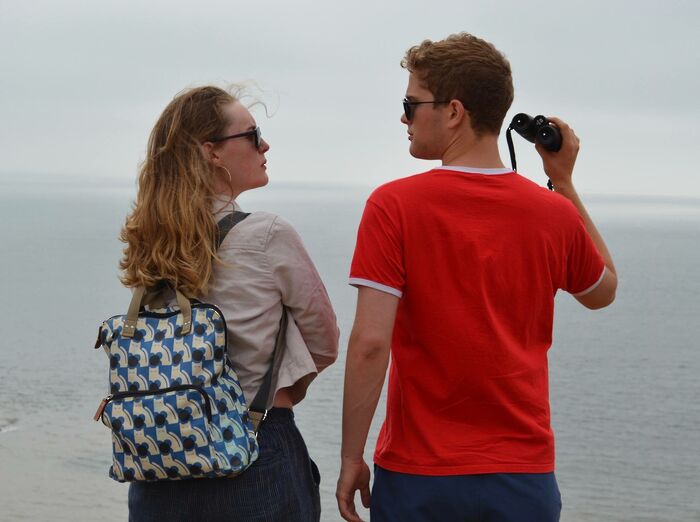But seriously, comedy needs to lighten up
Samuel Isaac explains how the increasing trend for ‘serious’ comedy is destroying the very power of satire

As turmoil hits Britain and the US, a thirst for political comedy seems only to be growing more widespread. Audiences are turning to comedians to speak the truth to those in power and lampoon those in government.
Perhaps it’s the sheer absurdity of the news cycle that requires these clowns of society, who navigate through the absurd on a daily basis, to guide us through this madness – look, for example, at the viral appeal of John Oliver and Stephen Colbert in the US, or, closer to home, the popularity of political comedians such as Alice Fraser and Nish Kumar.
Yet, even those who have been decidedly unpolitical up until this point are beginning to jump on the bandwagon, microphones in hand. A club set today would be incomplete without a nod to Trump or Brexit, as the comedian muses on the benefits of a single market before continuing their monologue about their hilarious visit to the supermarket. As our politics has become inane, the inane has become political and, at times, serious. And with this comes a problem.
The comedian asks for a moment of sincerity to finally explain the serious and concerning message behind the laughter
Michelle Wolf, the American comic made infamous for her speech at this year’s White House correspondents’ dinner, has a piece in her new comedy show where she parodies the current satirical talk shows. “Since this is a comedy show in 2018”, she explains to the crowd, “you know one thing for sure. This comedy segment is going to be sincere and angry.” She goes on to list all the tropes of the genre, from an “information part” to the “unexpected pivot”, ending triumphantly with the “courageous point”, because, as she explains, “writing jokes is hard and you know what’s easier? An earnest plea.”
This earnest plea, or what I'll call the ‘But seriously...’ part of show, has become an increasing phenomenon in all modern comedy shows. The comedian asks for a moment of sincerity to finally explain the serious and concerning message behind the laughter. Vital issues are always raised here, but I’d argue that something crucial is lost when our comedy becomes too political.
The beauty of satire lies in its ability to laugh at everything, to take that which is serious and remind its audience of its sheer absurdity
Although true satire has politics as its subject, it never becomes political. Its beauty lies in its ability to laugh at everything, to take that which is serious and remind its audience of its sheer absurdity. It shouldn’t be ideological and it can never go too far.
A true example of this is the Private Eye letters page. Here readers comment on and praise the investigative work of such a paper which still finds the occasion to highlight, say, the uncanny similarity between Vladimir Putin and Voldemort. The first few letters are always filled with threats to cancel subscriptions over a particularly offensive cartoon or caption: a Mr Smyth or a Mrs Thompson will always begin by qualifying that they usually find cover gags about Princess Diana as funny as the next person, but on this occasion the paper has 'just gone too far’, and as a result they will be withdrawing their custom forthwith. The organ dutifully publishes a few such letters every issue, in doing so exhibiting to its remaining readers the true appeal of satire.
This current trend of earnest comedy troubles me
We can’t deny that satire has real political power, and we only have to remind ourselves of Charlie Hebdo attack and the incredible worldwide support it received in its aftermath to recognise such power. But the magazine’s strength came from its capacity to always laugh, and it was for this reason alone that its enemies tried to destroy it. True satire refuses to listen to the letters written the Mrs Smyths and Mr Thompsons who attempt to draw it into the realm of the serious.
This current trend of earnest comedy troubles me. It signals that satire is losing its unique escapism. It suggests that we have lost our ability to laugh.
You could argue that the state of global politics has become so dire that there is no space for humour. That populism, the nuclear threat and oppression are not laughing matters - and I’d agree.
But satire gives us the chance to mock and to jeer. To remind ourselves that even the largest dictators still hold a resemblance to He Who Must Not Be Named. In this aspect it is uniquely democratic, and this sheer silliness cannot and should not be underestimated, for it is the source of satire's true power. In 2018, more than ever, we need to bring on the clowns. Let them stand on stage, and make us cry with laughter.
 News / Cambridge student numbers fall amid nationwide decline14 April 2025
News / Cambridge student numbers fall amid nationwide decline14 April 2025 Lifestyle / First year, take two: returning after intermission14 April 2025
Lifestyle / First year, take two: returning after intermission14 April 2025 News / First candidate to announce chancellorship bid pledges to tackle bullying 12 April 2025
News / First candidate to announce chancellorship bid pledges to tackle bullying 12 April 2025 News / Uni to ‘review’ tripos rankings and weekend lectures in undergrad teaching overhaul10 April 2025
News / Uni to ‘review’ tripos rankings and weekend lectures in undergrad teaching overhaul10 April 2025 Sport / Cambridge celebrate clean sweep at Boat Race 202514 April 2025
Sport / Cambridge celebrate clean sweep at Boat Race 202514 April 2025





